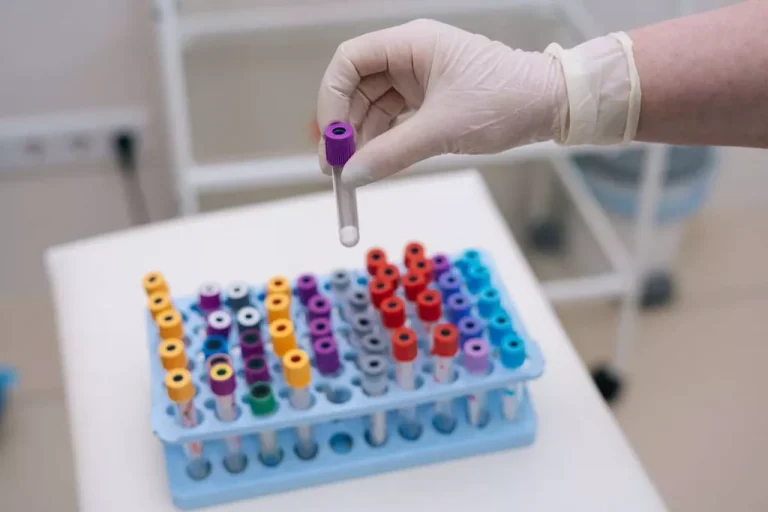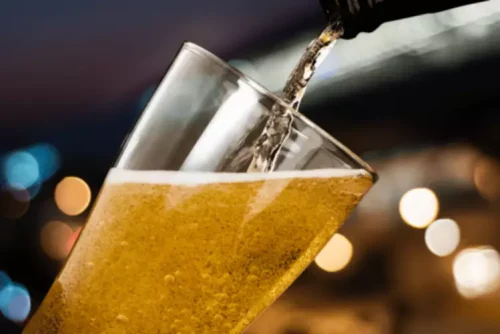
We contacted the author of Rosito 1999 to request additional information regarding the method of blinding used. The study author explained the blinding method in detail in an email, so we classified this study as having https://ecosoberhouse.com/ low risk of bias. We also calculated SD if 95% CI, P value, or t value was reported in the included studies, according to Chapter 7 of the Cochrane Handbook for Systematic Reviews of Interventions (Higgins 2011).
Long-term Effects
- Visual inspection of funnel plots shows that the effect estimate is equally distributed around the mean in Figure 4, Figure 5, Figure 6.
- The best way of knowing if there’s a problem is to have your blood pressure measured.
- Individuals who drink alcohol in excess can help improve their overall health by stopping drinking.
- This relaxes the blood vessels to reduce hypertension (high blood pressure).
- This puts a strain on your arteries and your heart, which in turn increases your risk of a heart attack, a stroke or of suffering from kidney disease.
More than one cellular event may be happening at the same time, and, as with other chronic health conditions, the relevant mechanisms may be synergistic and interrelated. Figure 3 summarizes the potential mechanisms underlying the cardioprotective and adverse effects of alcohol how does alcohol affect blood pressure consumption. This area of research was briefly outlined here; more comprehensive reviews on these mechanisms are available (Krenz and Korthuis 2012; Mathews et al. 2015). Completely refraining from consuming alcohol lowers the risk of some of the health risks listed above.
- Various studies with animals and humans indicate that ethanol can increase the development of reactive oxygen species (ROS), leading to increases in redox-signaling pathways and decreases in protective antioxidant levels.
- We took several steps to minimise the risk of selection bias to identify eligible studies for inclusion in the review.
- Because of space limitations, not all of the excellent scientific work on alcohol and the cardiovascular system could be assessed in this review.
- Completely refraining from consuming alcohol lowers the risk of some of the health risks listed above.
- High alcohol consumption also increased heart rate from 7 to 12 hours and after 13 hours.
Van De Borne 1997 published data only
In studies where sex‐specific results were not provided, we categorised dose based on the dominating sex in terms of study participation. Despite the progress in standardizing measurement of alcohol, studies still vary in how they define the different levels of drinking, such as low-risk or moderate and heavy drinking. Most often, low-risk or moderate drinking has been defined as 1 to 2 standard drinks per day and heavy alcohol consumption as 4 or more standard drinks per day. However, ascertaining the exact alcohol consumption threshold for determining both the benefit and risk has been challenging, and threshold levels continue to differ across studies.
Carter 2011 published data only
Some data relied on self-reporting; further data could include more diverse samples. Investigators have used a variety of noninvasive tests to evaluate the acute effects of alcohol consumption on myocardial function and hemodynamics in healthy humans. As with isolated animal heart experiments, some investigators have found that acute alcohol exposure (blood alcohol levels 40 to 110 mg%) depresses myocardial systolic function in humans (Delgado et al. 1975; Lang et al. 1985; Timmis et al. 1975). For example, in one study, the ejection fraction decreased by 4 percent after alcohol consumption (Delgado et al. 1975). Most likely, the decrease in contractility was offset by corresponding decreases in afterload (end-systolic wall stress), systemic vascular resistance, and aortic peak pressure, which maintained cardiac output.

Similarly, when blood pressure increases, these receptors increase the stretching of the blood vessel walls in order to decrease blood pressure. Hypertension, or high blood pressure, is a very common condition worldwide. Discuss your alcohol intake with your healthcare provider and make lifestyle changes as recommended. According to a 2018 study and the World Health Organization, no amount of alcohol intake is safe, so any amount may be considered too much.
Maule 1993 published data only
Methodological differences between studies might have affected measurement of the reported outcomes. Recent research suggests that automated ambulatory blood pressure monitors are more reliable than manual sphygmomanometers, particularly because automated monitors reduce white coat anxiety (Mirdamadi 2017). Of the 32 included studies, seven studies used a manual mercury sphygmomanometer or a semi‐automated sphygmomanometer for BP measurement (Bau 2005; Dai 2002; Karatzi 2005; Kojima 1993; Potter 1986; Rossinen 1997; Van De Borne 1997). Mixing of various measurement techniques (manual, semi‐automated, and fully automated) in the meta‐analysis might have led to some of the heterogeneity. We also did not rate the certainty of evidence based on the funding sources of studies or on lack of a registered protocol because we did not think this would affect the effect estimates for these outcomes. However, we noted the lack of description of randomisation and allocation concealment methods in most of the included studies as a reason for downgrading because of the possibility of selection bias.
Anticlotting therapies are therefore the cornerstone of managing acute coronary syndromes. Not surprisingly, alcohol consumption has complex and varying effects on platelet function. On the other hand, significant daily alcohol consumption increases platelet aggregation and reactivity. Infection or other stressful events also can lead to immune-triggered platelet production, a condition called rebound thrombocytosis, which may occur immediately after withdrawal from both heavy and one-time heavy (binge) drinking (Numminen et al. 1996). Although highly individualized and dose dependent, alcohol use also can increase bleeding time (i.e., taking longer to develop a clot)(Salem and Laposata 2005).

Ways alcohol can impact heart health
Although results related to levels of alcohol consumption and stroke events are less clear, some conclusions can be drawn. Approximately 1 to 2 drinks per day may have no effect on or lead to a slight reduction in stroke events; however, greater daily alcohol levels increase the risk for all stroke events and incident stroke types. In terms of stroke subtypes, compared with nondrinkers, current alcohol drinkers have an increased risk (~14 percent) for hemorrhagic stroke (Ronksley et al. 2011). Hence, we conducted additional analyses to see if the very high dose of alcohol (≥ 60 g or ≥ 1 g/kg) had any dose‐related effects compared to lower high doses of alcohol (31 to 59 g of alcohol) (see Table 9). Results suggest that the decrease in BP with very high doses of alcohol is greater compared to lower high doses of alcohol.

Because all of our outcomes of interest provided continuous data, we used the inverse variance approach and a fixed‐effect model to combine effect sizes across studies. We (ST and CT) independently screened the citations found through the database search using Covidence software (Covidence). We excluded articles if the citation seemed completely irrelevant or was identified as a review or observational study after the title and abstract were read. For remaining studies, we (ST and CT) retrieved full‐text articles for further assessment.
